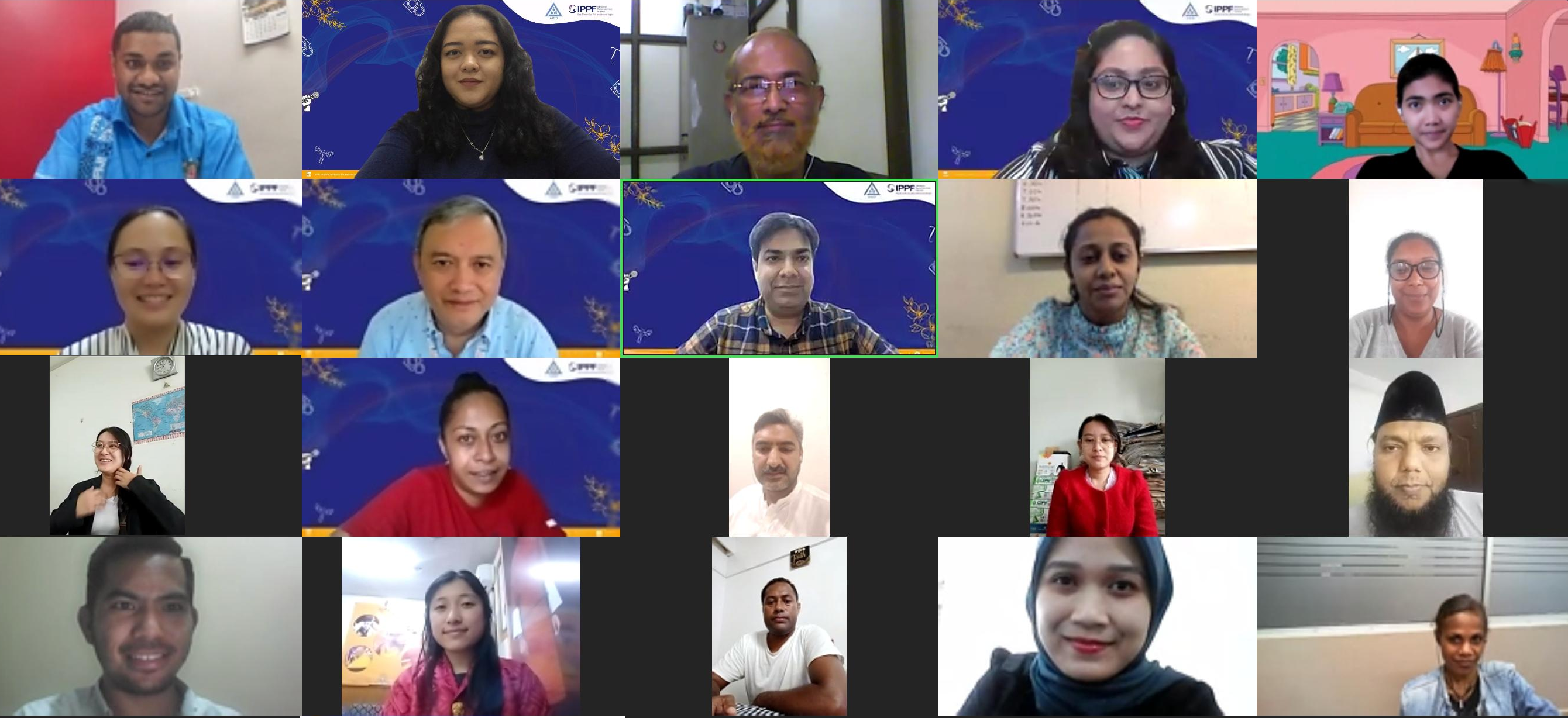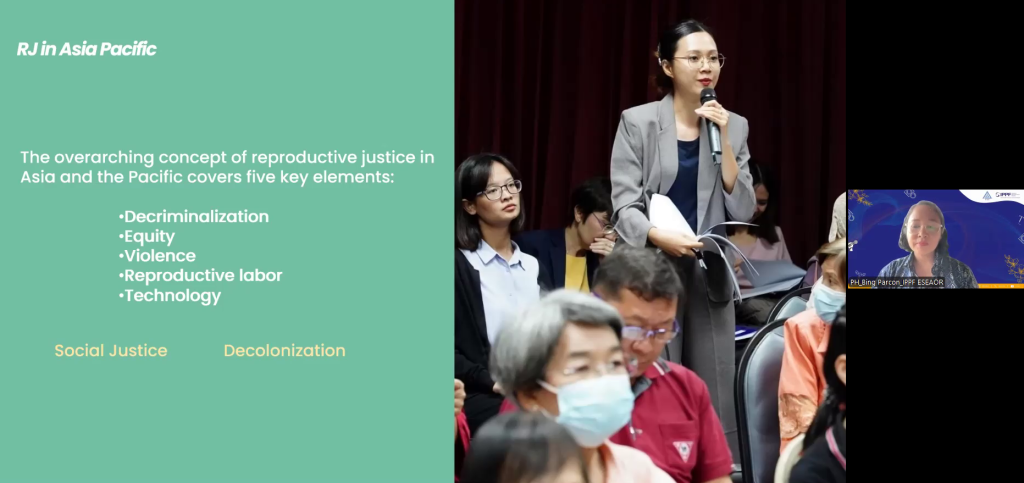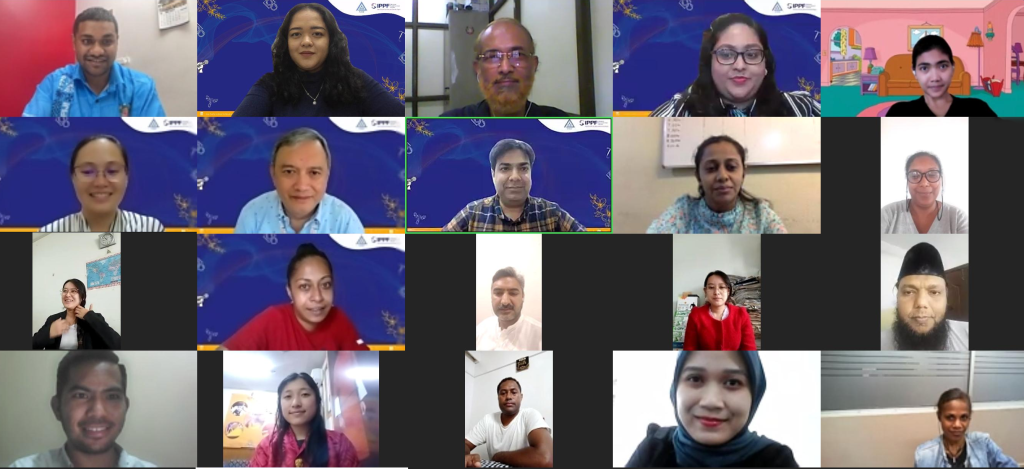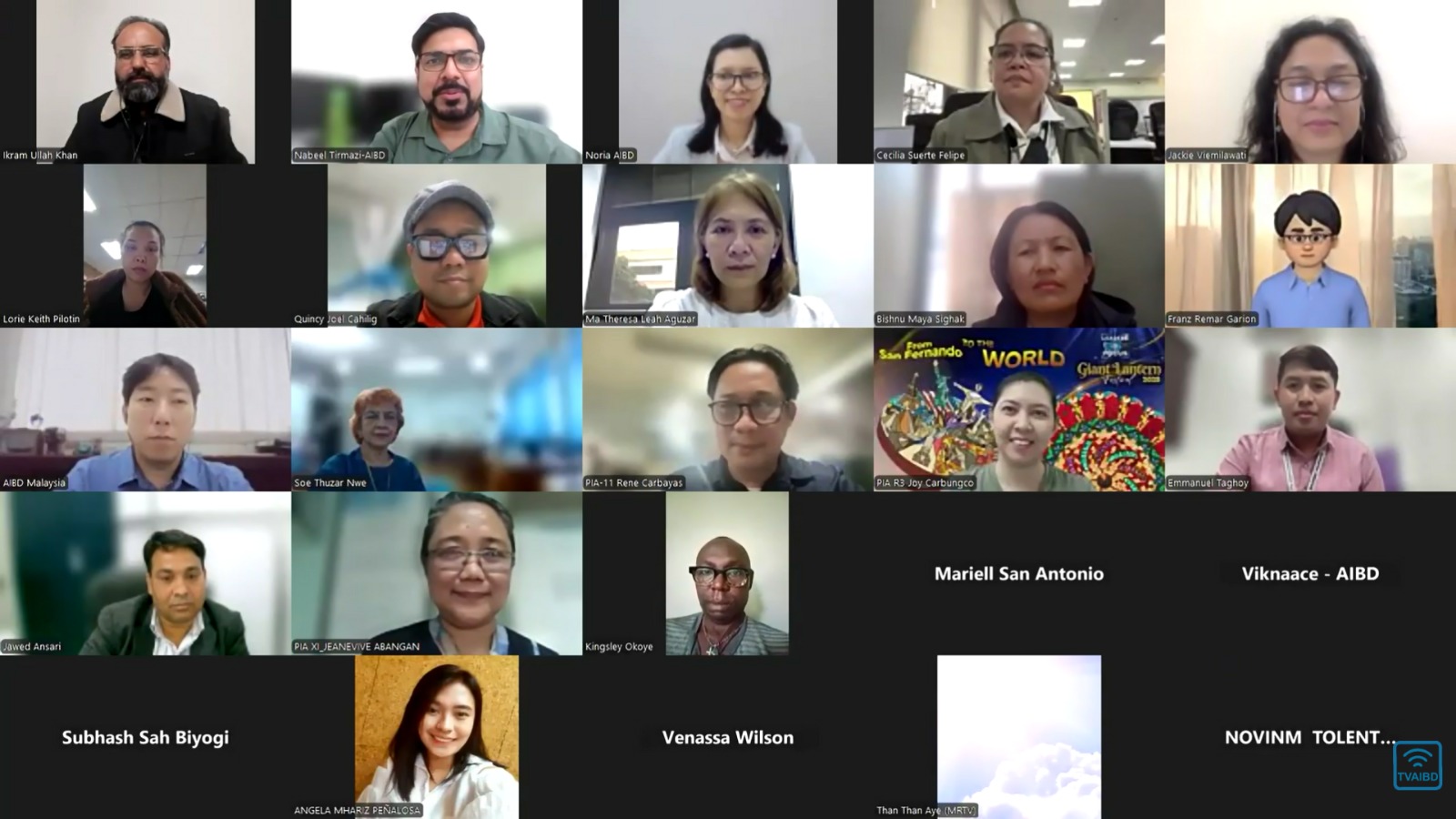
Journalists Across Asia-Pacific Trained in Media’s Role in Reproductive Justice
Forty-five journalists and content creators from 17 Asia-Pacific countries gathered virtually from July 23-25, 2024, to participate in a groundbreaking workshop focused on reproductive justice and human rights. Organized by AIBD and the International Planned Parenthood Federation East, Southeast Asia, and Oceania Region (IPPF ESEAOR), the event aimed to empower media professionals with the skills and knowledge to counter disinformation and advocate for reproductive health through accurate reporting.
The workshop addressed a pressing issue in the region: the rising tide of misinformation that undermines reproductive justice and threatens human rights. Asia-Pacific, with its diverse cultural and legal contexts, has become a battleground for anti-rights movements targeting marginalized communities. These movements often exploit media narratives to sow discord and reinforce harmful ideologies, presenting significant challenges to journalists striving to maintain integrity and uphold democratic principles.

Across three days, participants engaged in interactive sessions led by experts with decades of experience in media and reproductive health advocacy. Marevic Parcon, IPPF ESEAOR Member Associations Support & Development Director, provided a comprehensive introduction to the concept of reproductive justice from global and regional perspectives. Her session highlighted the intersectionality of reproductive rights with broader human rights concerns. Malarvili Meganathan, a Communications and Media Advisor with expertise in addressing disinformation, shared strategies for debunking false narratives while reframing reproductive justice in ways that resonate with diverse audiences. Lady Lisondra, a consultant specializing in youth and advocacy, offered insights into the impact of opposition groups and the importance of policy-focused storytelling.

Through a mix of lectures, group discussions, and breakout activities, the workshop encouraged participants to explore the nuances of reproductive justice reporting. Journalists and communication specialists collaborated to share their unique national perspectives and experiences, fostering a spirit of cross-border collaboration. These discussions also helped shape actionable strategies for crafting ethical narratives that challenge misinformation and amplify marginalized voices.
A central feature of the workshop was the creation of a resource guide to support media professionals in covering reproductive justice topics. Designed as a practical tool, the guide offers templates for news articles, video scripts, podcast outlines, and human-interest stories, all tailored to engage audiences with accurate and inclusive content. Participants envisioned this guide as a living document to be updated and expanded as new challenges and opportunities in reproductive justice reporting emerge.

The workshop also provided a platform for participants to present their ideas and content plans in a collaborative setting. The final day included presentations and reflections on key learnings, culminating in a discussion on next steps. The group also laid the groundwork for content production initiatives and a pre-workshop for the upcoming Asia Media Summit, ensuring continuity of the insights gained during the training.
During the event, the experts emphasized the critical role of ethical journalism in defending reproductive justice. Gessen Rocas, IPPF ESEAOR’s External Relations Director, noted the importance of empowering media professionals to counter disinformation and advocate for human rights. “Our goal is to build a network of journalists who can navigate the complexities of misinformation while championing reproductive justice in their work,” he said.
By bringing together media professionals from across the region, the workshop underscored the transformative power of collaboration and knowledge-sharing. AIBD and IPPF ESEAOR have set the stage for a more resilient media landscape, one where reproductive health and human rights are at the forefront of public discourse.






